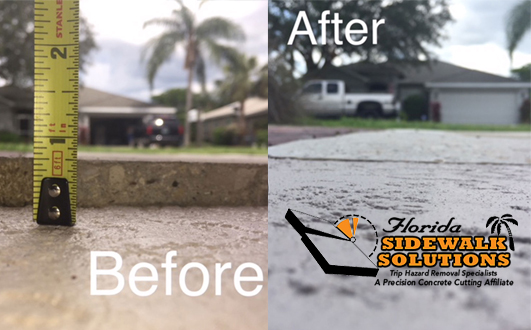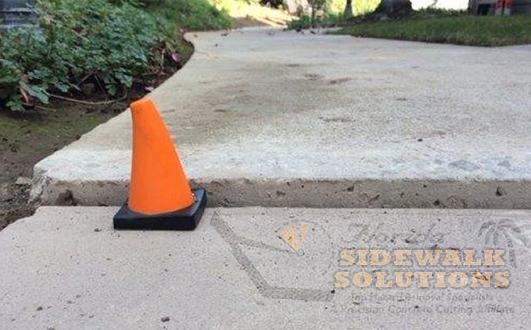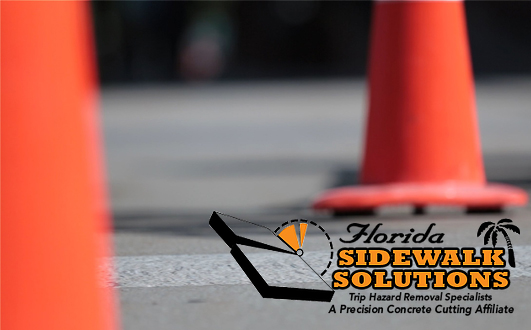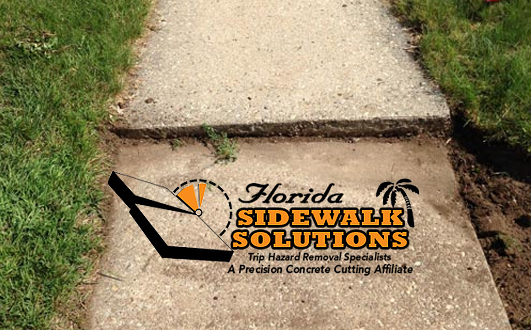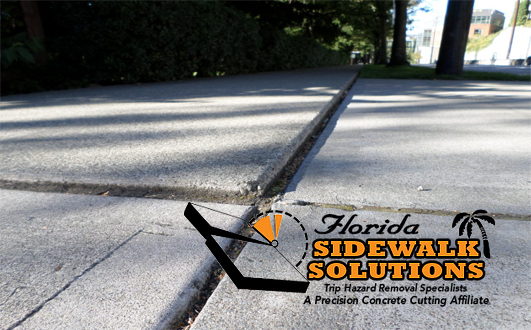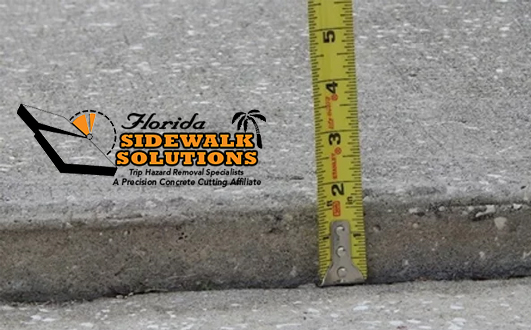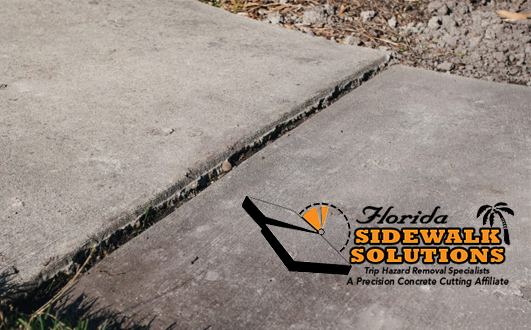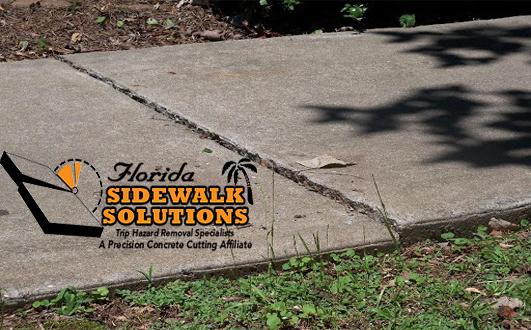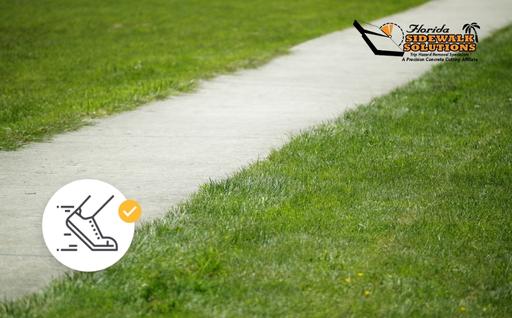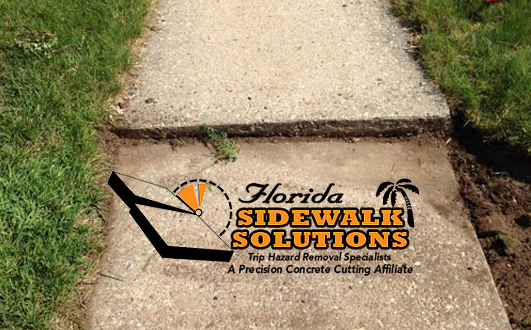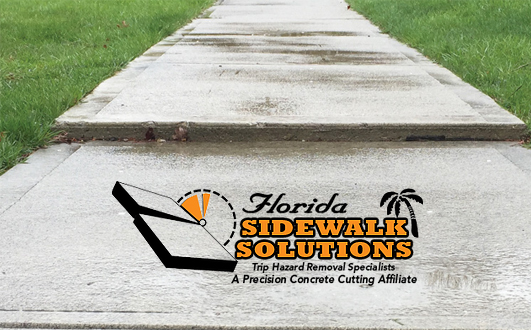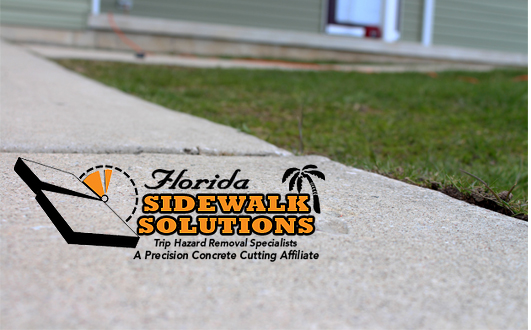Fixing trip hazards is important because of the negative impact that having an uneven concrete sidewalk can create. Uneven concrete sidewalk repairs are a necessity for business owners and property investors who would be held liable should someone become injured on the trip hazard.
There are a few different methods for fixing trip hazards, most of which are either quickly rendered ineffective or costly and disruptive. The most effective method for removing a trip hazard is by cutting concrete slabs until the walkway is safe and ADA compliant.
This article will detail some facts about how trip hazards form, the dangers of having trip hazards on any type of property, and why cutting concrete is the best method for fixing trip hazards. If you’d like to schedule a trip hazard removal service or wish to receive a free estimate for the cost of removing trip hazards, contact the trip hazard specialists.
What Causes Trip Hazards To Form?
Concrete sidewalks generally lay on top of soil, which itself shifts and remains in a state of constant change. Soil expands, contracts, and adapts to rising and falling temperature along with the different levels of moisture that are in the ground.
This causes the individual concrete slabs to settle, sink, fall, and rise at different rates in response to the earth changing beneath it. Other environmental factors like tree roots and heavy rain also contribute to sharp changes in the foundation on which walkways rest.
Why Fixing Trip Hazards Is Important
Trip hazards caused by uneven concrete pose a threat to anyone traveling along the sidewalk. The issue has resulted in major liability cases for business owners, HOA’s, commercial property owners, municipalities, private property owners, and anyone else who is responsible for the state of the pathway.
Ultimately, trip hazards are viewed as a public safety issue that can be especially threatening to young children, the elderly, and persons with disabilities. The Americans with Disabilities Act (ADA) defines trip hazards as any slope caused by cracks or joints in concrete that exceeds 1/4 inch and has strict compliance regulations put in place for pathways available to pedestrians.
What Is The Best Method For Fixing Trip Hazards?
Though there are a few different options to eliminate trip hazards, most of them don’t completely eliminate the trip hazard or simply do not last long. Cutting concrete to remove trip hazards is an inexpensive and efficient method that is environmentally friendly and causes minimal disruption.
The benefits of cutting concrete to remove trip hazards include:
- Less expensive and disruptive than replacing concrete
- Completely ADA compliant slopes
- Can be used the same day
- Long-lasting results
- No environmental impact
- Sidewalk is 100% safe and looks new
If you live in South Florida and have a trip hazard that needs to be removed, don’t wait until it’s too late! Contact Florida Sidewalk Solutions to let our trip hazard specialists eliminate the liability efficiently and affordably.
Fixing Trip Hazards
![]()

